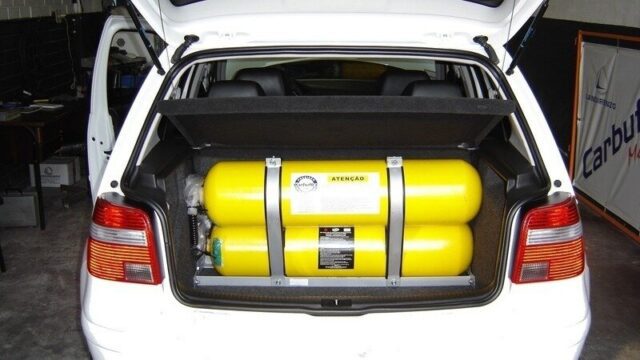It is high time to reconsider Mauritania’s place in the African context, moving beyond the reductive idea that it is merely a bridge between North Africa and Sub-Saharan Africa. Mauritania is not just a passage zone, but a rich and dynamic crossroads where cultures, religions, and commercial exchanges have intersected for centuries. This crossroads, both geographical and symbolic, is not just a space of transit for people but a point of anchor and meeting for multiple civilizations, particularly through Islam, Trans-Saharan trade, and the spiritual and cultural ties that have shaped Mauritanian identity.
Historically, Mauritania has been a center for the spread of Islam in West Africa and the Maghreb, not only through the Almoravids, who worked under the leadership of Youssef ben Tachfine, but also through networks of merchants and Sufi brotherhoods such as the Essouviyine, El Ghaderiyine, and Tijaniyine, who continue to play a fundamental role in spiritual transmission and the consolidation of inter-African bonds. These exchanges have shaped a Mauritania deeply connected to its African environment, not merely a transit point between different regions of the continent.
Nowadays, some voices are rising to challenge this fundamental achievement, seeking to weaken our collective identity through intense media pressure, particularly on social networks, where African migrants, especially those of black race, are often stigmatized and demonized. Such rejection of our cultural and historical roots would not only be a monumental mistake but also a profound rupture with a heritage that we should not only be proud of but have the responsibility to preserve, transmit, and strengthen for future generations.
Migration is not just a societal fact: it is an unstoppable global dynamic, shaped by economic, climatic, and political forces of such magnitude that no state, no matter how powerful, has ever been able to stop it. Throughout history, humans have always migrated, whether to flee conflicts, seek better opportunities, or escape precarious living conditions. Today, this migration is seen as a problem by modern nation-states, which attempt to address it through ineffective and often inhumane policies.
Mauritania: A Vast Territory on an Unavoidable Migratory Route
With its vast territory and porous borders, Mauritania is a strategic transit point for thousands of migrants from Sub-Saharan Africa seeking to reach Europe. Contrary to a common belief, these migrants do not aim to settle permanently in Mauritania. They pass through it, sometimes temporarily, to continue their journey northward.
Trying to stop these flows is not only unrealistic but also counterproductive. No wall, no border control can prevent desperate individuals from trying their luck elsewhere, especially when living conditions in their countries of origin have become unlivable.
The West: The Primary Culprit of a System It Claims to Fight
Europe, which today displays an ultra-secure migration policy, is paradoxically the origin of the conditions that push these migrants to flee.
- The looting of Africa’s resources by European multinationals hinders the economic development of the continent.
- Unfair trade agreements maintain African countries in a structural economic dependency.
- The sponsorship of corrupt regimes by Western powers.
Western hypocrisy is glaring: after exploiting Africa and supporting authoritarian regimes, it now closes its borders and criminalizes those fleeing the consequences of these policies.
A Pragmatic Approach for Mauritania: Organize Rather Than Repress
Faced with this unavoidable reality, Mauritania must adopt a strategic stance: instead of investing in a futile fight against migration, it can transform this migratory passage into an economic and diplomatic lever.
- Intelligently Manage Migratory Flows:
- Set up temporary reception centers, with clear legal frameworks, allowing migrants to work under certain conditions before continuing their journey.
- Offer provisional residence permits, allowing limited economic activities to integrate migrants into the formal economy and prevent illegality.
- Use Migration as a Diplomatic Asset:
- Position itself as a key player in African cooperation on mobility and development.
- Economically Benefit from the Passage of Migrants:
- Smartly tax certain migration-related activities (accommodation, services, transport), like Saudi Arabia, Singapore, Malaysia, and also South Africa, which recently announced its intention to introduce a tax on the employment of foreigners.
- Encourage investment in entrepreneurial projects led by skilled migrants, particularly in trade and services.
Standardize Working Conditions to Avoid Social Dumping
To avoid unfair competition with the local workforce, it is essential to standardize working conditions to prevent social dumping. One of the major risks associated with the employment of foreign workers is the possible artificial lowering of wages and the precarization of jobs. Indeed, some employers may be tempted to favor migrants, attracted by their availability and acceptance of tougher working conditions, which creates a distortion in the labor market and gradually excludes national workers.
To counter this phenomenon, a strong legal framework must ensure the application of the interprofessional guaranteed minimum wage (SMIG) to all workers, regardless of nationality. This measure would prevent the creation of a two-tier labor market, where migrants are exploited at a low cost to the detriment of local workers.
Migration Cannot Be Stopped: It Is the Product of Historical Injustices and Global Economic Imbalances
Migration is an irreversible product of historical injustices and global economic imbalances. Mauritania, as a transit country, has every interest in adopting a pragmatic and strategic approach rather than enduring this reality. Instead of erecting useless barriers, it can capitalize on its geographical position to derive economic and diplomatic benefits, while defending its own interests in the face of Western pressures.
Written by Engineer El Hadj SIDI BRAHIM
📌 Read more on this link: https://www.elhodh.info/en/al-hawd-news-2/


















